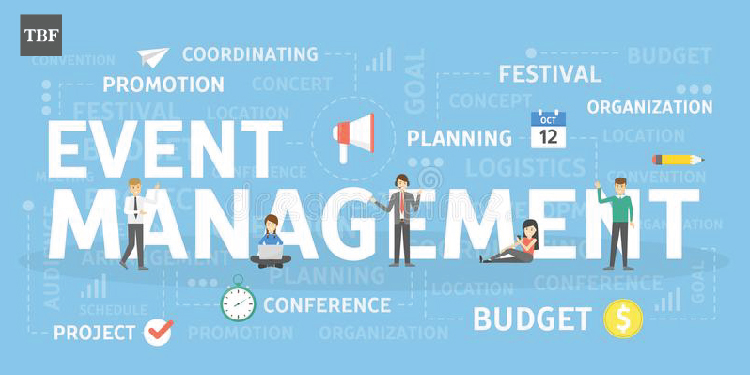How charlotte event companies embrace digital tools to improve communication
A Deep Study Exactly How Event Management Works to Produce Memorable Experiences
Event management is a complicated self-control that incorporates numerous components to craft extraordinary experiences. It calls for a clear understanding of the event's objective and audience. Coordinators have to navigate budgeting, logistics, and advertising to ensure a seamless execution. Each component plays an important role in accomplishing the desired effect. Nevertheless, the trip does not finish with the event itself. There are understandings to discover that can form future undertakings.
The Principles of Event Management
Reliable event management incorporates a variety of crucial concepts that lead the planning and execution of effective occasions. At its core, it entails comprehending the event's objective, audience, and desired results. Recognizing the target group is crucial, as it notifies choices associated with web content, advertising and marketing, and logistics.
Budgeting is another essential element, assuring that sources are alloted efficiently while meeting the event's goals. This includes preparation for unexpected costs that may develop.
Time management plays an essential role, as event supervisors need to create a comprehensive timeline to work with various jobs and landmarks.
Furthermore, efficient communication among stakeholders, vendors, and staff member is important to ensure alignment and avoid misconceptions.
Risk management have to be taken into consideration, with contingency strategies in location to resolve potential obstacles, therefore boosting the total experience for attendees and ensuring a seamless execution of the event.
Key Roles in Event Planning
In event preparation, recognizing key roles is essential for effective execution. The event planner is in charge of overseeing logistics and making certain all elements align with the vision. In addition, efficient supplier management is vital for preserving quality and promoting solid partnerships throughout the planning procedure.
Event Planner Obligations
An occasion coordinator manages the intricate components of event preparation, guaranteeing seamless implementation from conception to final thought. They are in charge of conceptualizing the event motif, setting budget plans, and producing timelines to maintain the task on the right track. Sychronisation with stakeholders, consisting of clients, location supervisors, and volunteers, is vital to straighten assumptions and assist in interaction. The planner likewise looks after logistics, such as event catering, transportation, and technology requires, making sure all elements work sympathetically. They perform site visits, handle routines, and troubleshoot problems that might emerge throughout the event. Post-event, the planner reviews the event's success, collecting responses and examining end results to educate future tasks. This complex duty calls for solid business abilities, focus to information, and reliable social interaction.
Supplier Management Basics
Steering with the landscape of vendor management is important for successful event planning. Reliable supplier management includes determining, choosing, and coordinating suppliers that give essential solutions, such as food catering, audiovisual support, and decoration. Event planners must maintain solid interaction with vendors to guarantee that all aspects straighten with the event's vision. Key roles consist of the vendor manager, that manages contracts and negotiations, and the logistics planner, accountable for on-site configuration and implementation. It's important to establish clear assumptions and timelines, fostering a collaborative setting that enhances the total experience. By focusing on these aspects, event coordinators can navigate possible difficulties, guaranteeing that every information adds to a seamless and remarkable event.
Crafting a Vision: Concept Advancement

As soon as a vision is established, it ends up being important to equate it into actionable elements. This includes defining the atmosphere, choosing appropriate locations, and figuring out the event's style. Teaming up with stakeholders, consisting of enrollers and partners, even more improves the principle, making certain that all celebrations share a combined understanding of the event's function. Inevitably, a strong vision not just improves participant interaction however additionally sets the phase for unforgettable experiences that reverberate long after the event ends.
Budgeting and Source Appropriation
With a clear vision in place, the following action in event management entails mindful budgeting and source appropriation. This critical phase warranties that all essential parts are moneyed and straightened with the event's goals. Event supervisors begin by estimating costs related to place option, wedding catering, amusement, and marketing. They develop a thorough budget that lays out each group, enabling transparency and accountability.
Source allowance prolongs beyond funds; it additionally incorporates human sources. Determining team functions, responsibilities, and timelines is important to assure effectiveness. Event managers have to additionally consider backups for unforeseen expenses or adjustments in range, establishing a barrier within the budget.
Focusing on spending on components that improve visitor experiences is important. By tactically allocating sources, event supervisors make the most of influence while preserving economic see here now control. This disciplined strategy not only promotes effective events however additionally develops reliability and depend on with stakeholders and participants.
Logistics: The Backbone of Event Implementation
While budgeting lays the groundwork for an event, logistics work as its backbone, ensuring that every facet is implemented smoothly and effectively. charlotte event companies. This incorporates a large range of activities, including location option, transport arrangements, and devices purchase. Effective logistics management needs precise preparation and coordination to guarantee that all aspects line up with the event's timeline and objectives
Trick elements of logistics include stock management, where materials and products are tracked to stop shortages, and staffing, which includes recruiting and training personnel to handle different jobs. Interaction is also critical, as it facilitates cooperation among vendors, sponsors, and the event group.

Advertising and Promo Approaches
Efficient advertising and promotion techniques are necessary for maximizing attendance and engagement at an event, as they generate interest and excitement among potential individuals. Event supervisors utilize a mix of standard and digital marketing techniques to reach their target market. Social media systems, e-mail projects, and targeted ads are typically utilized to create buzz and foster area communication. Partnerships with influencers or industry leaders can boost reputation, while involving web content such as videos and testimonials can reverberate with prospective attendees.
Furthermore, leveraging event-specific hashtags and producing shareable graphics encourages natural promotion among participants. Early bird ticket deals and special promotions can incentivize enrollment, furthermore boosting passion. A well-designed internet site that uses simple navigation and clear details regarding the event can enhance the customer experience. By applying these advertising and marketing and promo approaches, event managers can assure higher exposure and ultimately produce a remarkable experience for all participants.

Measuring Success: Responses and Examination
Success in event management rests on durable responses and examination mechanisms. These processes are essential for establishing the effectiveness of an occasion and identifying locations for improvement. By gathering input from participants, organizers can analyze contentment levels, comprehend choices, and evaluate total impact. Surveys and meetings work as important devices for collecting quantitative and qualitative information, enabling complete analysis.
Furthermore, examining essential efficiency indications (KPIs) such as attendance rates, interaction degrees, and roi (ROI) provides a clearer image of event success. Post-event debriefing sessions with the planning team also contribute understandings, promoting a society of constant improvement.
Ultimately, an organized strategy to comments and evaluation not only boosts future events however likewise reinforces partnerships with stakeholders. By applying these techniques, event supervisors can develop unforgettable experiences that resonate with individuals and drive recurring involvement.
Frequently Asked Inquiries
Exactly How Do Event Supervisors Deal With Unforeseen Difficulties During an Occasion?
Event supervisors deal with unanticipated difficulties by remaining tranquility, evaluating the situation, and carrying out contingency plans - charlotte event companies. They communicate effectively with their group, adjust rapidly, and focus on options to guarantee the event proceeds smoothly and effectively
What Modern Technology Devices Are Important for Modern Event Management?
Necessary innovation devices for modern-day event management include event registration software, job management applications, guest involvement systems, and analytics tools. These sources simplify processes, improve interaction, and enhance overall event experiences for organizers and individuals alike.
Exactly How Do Cultural Distinctions Effect Event Preparation and Implementation?
Cultural distinctions considerably influence event preparation and execution. They affect styles, customizeds, interaction styles, and click for more info assumptions, requiring customized methods to assure inclusivity and respect, inevitably shaping the total experience and success of the event.
What Are the Honest Considerations in Event Management?
Moral considerations in event management incorporate transparency, sustainability, cultural level of sensitivity, and inclusivity. Coordinators must prioritize justness, respect diverse target markets, decrease ecological impact, and assurance accessibility to produce liable and unforgettable experiences for all individuals.
How Can Sustainability Be Integrated Into Event Planning?
Sustainability can be incorporated into event planning by using eco-friendly materials, decreasing waste, sourcing local suppliers, implementing carbon balanced out programs, and advertising electronic solutions to minimize pop over to this site paper use, thus improving ecological consciousness within the event's structure.